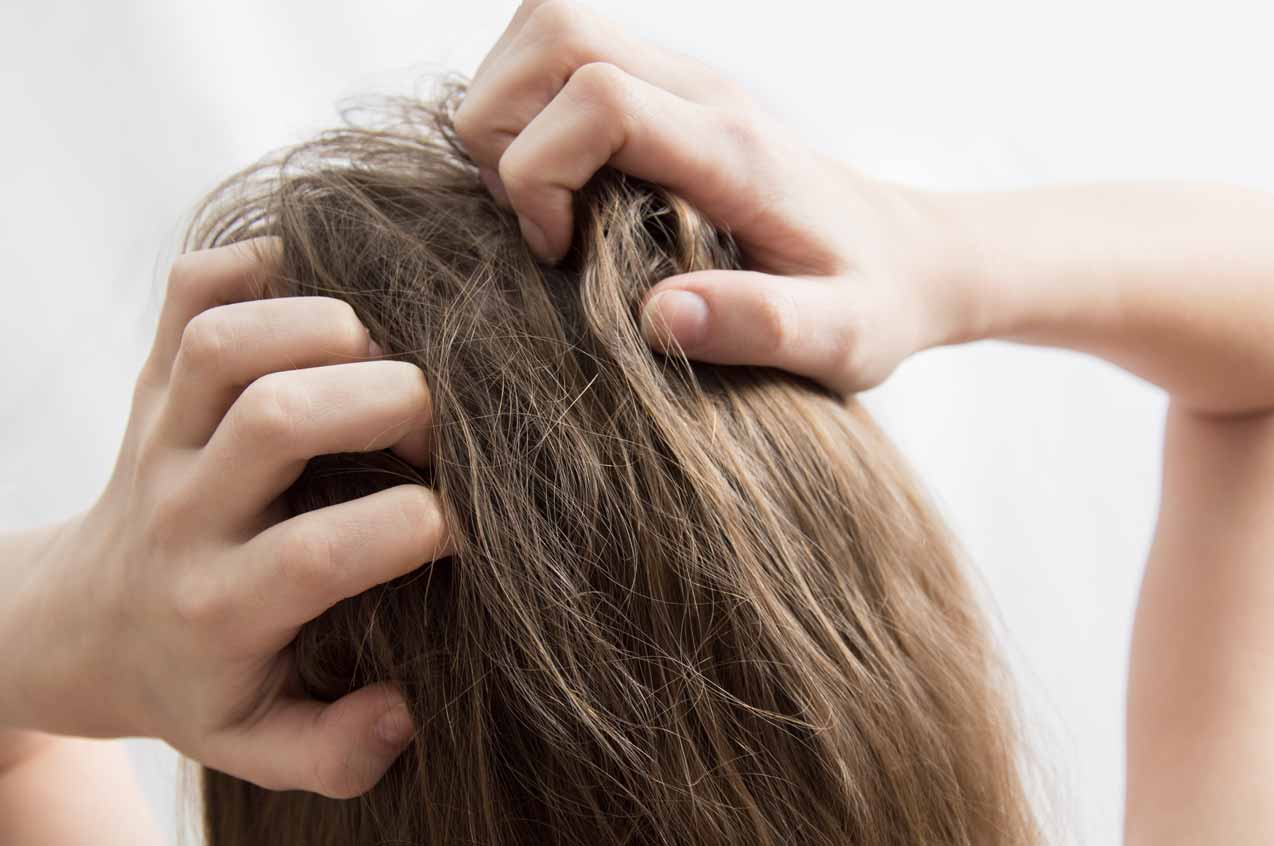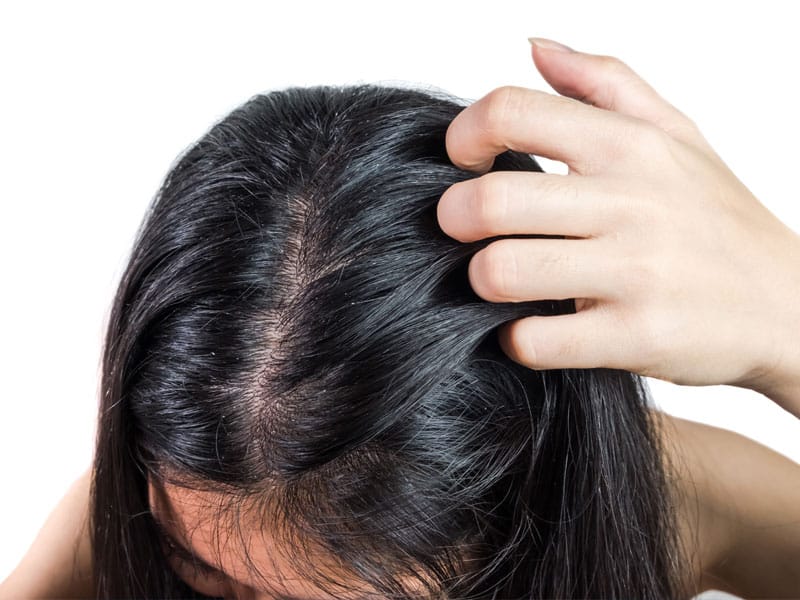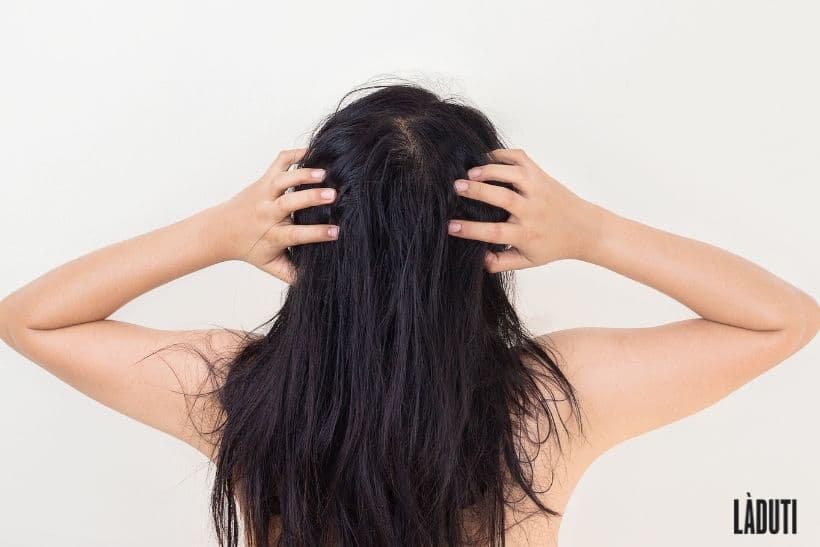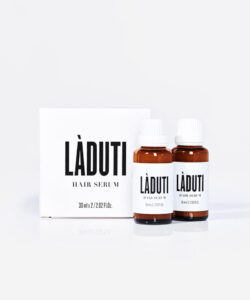The scalp is the basis for vital hair growth and should therefore not be left out of care. Sudden itching can be extremely unpleasant and painful for those affected. Almost 75 percent of the world's population is affected. Many women and men are often not aware of how important sufficient and regular care is and how much this is connected to healthy hair.
It often receives little attention, which can have fatal consequences. It is extremely sensitive and prone to dandruff or dry patches of skin. It is not uncommon for these areas to cause such discomfort that bloody wounds result from the irrepressible urge to scratch. The problem is not only of a purely cosmetic nature and therefore needs to be treated medically. This article explains the possible causes and triggers of this condition and how certain treatment alternatives can bring about improvement.
Symptoms for itchy scalp

The symptoms are manifold and can vary in severity. In any case, they are to be taken seriously and should be observed, as otherwise it can lead to considerable suffering for those affected. Itchy scalp often accompanies dry skin on the head. General signs may include the following characteristics:
- frequent head scratching both during the day and at night
- white flakes on the scalp or in the hair
- yellow scales on the head
- red, scaly patches on the skin
Whereas the white flakes or yellow head scales are a seborrheic dermatitis (eczema) skin patches that appear should be checked for a possible Psoriasis (psoriasis) be examined. Eczema is harmless and not contagious and is one of the most common skin diseases. However, the exact cause is not known. Often genetic backgrounds play a role. All symptoms mentioned point to a Skin disease to it. A visit to the dermatologist is therefore appropriate and strongly recommended in order to avoid later consequences such as Hair loss to avoid.
To counteract hair loss, nourishing products such as the Laduti Hair Growth Serum proven. This has only natural active ingredients and is particularly skin-friendly.
Trigger for imbalance on the head
Also, the causes of stressed skin on the head are variable. It produces less talc, itches and dandruff. This in turn promotes brittle and dry hair. Once the scalp is irritated, it urgently needs rest and should be treated accordingly. Causes can be, among others:
- Unsuitable hair products and excessive cleaning
- Temperature change
- Stress
- Allergies and skin diseases
- Lice
- Fungal diseases
- Hormonal change
- Chemical treatments
- Chlorine and salt water
Too frequent shampooing and improper care
One of the most common causes of discomfort on the head is excessive washing as well as the use of the wrong products. Shampoos with strong detergents and sulphates attack the protective lipid layer, which promotes drying. Daily washing is therefore not recommended. In addition, the use of mild hair shampoos should be resorted to. Dermatologists also recommend not shampooing the hair more than three times a week, depending on the hair type. Hair care products are often associated with allergic reactions that cause severe itching.
Climatic conditions
Cold winter days are predestined for dried-out skin on the head. Air conditioning and dry heating air also promote dehydration, so the change between warm and cold is a constant strain. Moisture is lacking and insufficient care can lead to the above-mentioned symptoms. But extreme heat stress caused by excessive hairdressing with hot styling tools can also be the cause.
Inner tension
Stress and inner turmoil are also often triggers for problems with the skin. It is the mirror of our soul. Private discomfort then often manifests itself in the form of skin irritations. Stress promotes the release of the hormone cortisol, which makes it more susceptible to inflammation. Hormone fluctuations resulting from psychological problems often show up first on the head, as the skin there is particularly sensitive and prone to disturbances.
Allergies and skin diseases
Sometimes allergies to certain foods or ingredients in skin care products are to blame for itchy and dry skin on the head. According to this, there could be a sensitivity to some washing substances in shampoos. Skin diseases such as neurodermatitis tend to cause dryness anyway. This inevitably leads to Itchy as well as a feeling of tension and, under certain circumstances, eczema. Psoriasis, like all allergies and skin diseases, should be examined by a doctor.
Head lice and co.
An infestation of parasites such as lice or fleas should also be considered when itching occurs on the head. Especially in schools or kindergartens, there is an increased risk of infection and thus anyone who has a lot to do with children can be susceptible to the pests. However, special remedies from the pharmacy or a visit to a hairdresser who specialises in lice will eliminate the infestation quite quickly. In order to be able to identify a flea bite, you should look for corresponding bite marks. An infestation on the head is very rare, however, it cannot be ruled out in infants or immunocompromised persons.
Fungal infestation (mycoses)
In the case of fungal diseases, the composition of the skin lipids and flora changed, which can manifest itself through an excessive settlement of certain yeast fungi. The result: the sensitive skin on the head itches. So-called ringworm also develops due to fungi. These are however highly contagious and transmissible from person to person or even from pet to pet.
Hormone fluctuations
A Hypothyroidism or a severe undersupply of the hormone estriol can be responsible for the fact that the Hormone system unbalanced is. Scalp diseases are also possible in this context.
Bleaching or dyeing
Chemical treatments such as bleaching or dyeing or a perm should be avoided if the skin on the head is irritated. The partly aggressive means can damage the sensitive skin on the head and cause further discomfort.
Chlorine and salt water
A damage of the sensitive acid mantle of the scalp is possible by salty or chlorinated water. Accordingly, bathing in the sea or swimming pool should be avoided in case of complaints. waived become. As an alternative, a waterproof bathing cap contribute to the protection.
What soothes an irritated scalp?

In case of massive itching on the head, the first thing to do is to look for the cause. Only then can it be counteracted with an appropriate treatment. The treatment method is therefore related to the causes of the symptoms. For example, if the itching is due to a skin disease, this will be treated first. To soothe the skin on the head, it is recommended to apply moisturising creams to the affected areas. Special hair tonics or homemade tinctures are also suitable, as these do not have to be rinsed out again immediately and the active ingredients can thus penetrate the skin intensively.
In any case, the shampoo should be chosen carefully if there are already problems. The natural moisturising factor urea is particularly recommended and is often found in lotions. By applying it, the depots are replenished with natural moisturising factors. Remedies with medicinal herbs, tea tree oil or eucalyptus also contribute to soothing and cooling. On the other hand, shampoos with an anti-dandruff effect should be avoided. Ph-neutral products without silicones, fragrances, dyes and preservatives are better suited. Furthermore, creams and lotions for babies have proven to be healing, as they are extraordinarily gentle. Scratching and rubbing the affected areas is also not advisable, as it irritates the skin even more. It also damages the hair structure in the long run.
More tips and home remedies that provide relief
In addition to the use of medical means, can also certain habits introduced into everyday life or well-tried Home remedy can be applied:
- Oils: They are a tried and tested remedy and have proven to be particularly effective. Especially organic oils such as olive, avocado or coconut oil help to soothe the sensitive scalp. They provide sufficient moisture and minimise the symptoms.
- Apple Cider Vinegar: This home remedy is used for almost all hair problems. Just two tablespoons in a litre of water is enough for a rinse and helps to heal.
- Lavender water: It soothes the stressed scalp and is best applied in the evening to leave on overnight. It is not necessary to rinse.
- Boar bristle brushThese brushes promote blood circulation so that the skin on the head can be preventively regulated. Therefore, they are only suitable for phasic itching and should not be used in acute phases of discomfort.
- Reducing hair washing: The skin on the head is most likely to calm down by washing the hair less and thus giving it a break.
- Avoidance of heat: Heat of any kind, whether in the form of warm water when showering or hot air when blow-drying, should be avoided. It is better to air dry the hair and care for it with lukewarm water.
- Stress ReliefIt is important to avoid stress and to find relief through relaxation and meditation techniques.
Conclusion
An itchy and irritated scalp can become a painful and unpleasant problem. However, before it leads to further complications and, in the worst case, to a Hair loss a visit to a specialist is advisable. Often, those affected are not aware of the effects and ignore the symptoms or try to combat them with the wrong remedies or take too much care. One thing above all helps: rest and time for regeneration.
It should continue to be monitored for changes and treated accordingly by a doctor depending on the symptoms. Diet also plays a role and can contribute to improvement. Care products such as special shampoos or Hair Growth Serums from Laduti can additionally be used preventively and prevent further possible effects such as a loss of hair. Not infrequently, the trigger for the problem lies within.
FAQ
What are the symptoms of a disturbed scalp?
The signs are varied and range from frequent head scratching to white flakes or yellow dandruff in the hair.
What are possible triggers?
Trigger could be, among other things, wrong or too much care. Also the infestation of parasites or possible allergies are conceivable.
What treatment methods help?
It is best to soothe the sensitive skin with appropriate remedies and avoid triggers that led to the problems.



